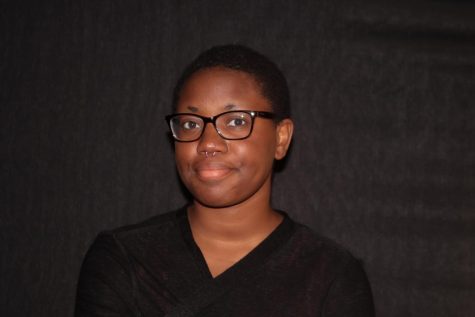Civic Organizations Combat Voter Apathy
September 6, 2022
According to research performed in 2016 by Tufts College of Civil Life provided by UTSA’s own Office of Civic & Community-Engaged Leadership (CCEL), approximately 39% of young people between the ages of 18 and 29 took part in the 2016 federal elections. This figure does not include the 2020 elections, which moved nearly 50% percent of youth voters to the polls. And with the remnants of 2020’s steaming political climate still up in the air, many young, new voters will be navigating the voting process and their own political agendas for this year’s midterm elections. Senior psychology major and member of Chi Alpha Kenneêth Brown is eager to do so.
“I believe that with us having a democracy, we have to use our voices to elect people in [our] favor. People that should represent us,” Brown said. “There’s a verse in the Bible … in the book of Esther that talks about ‘for such a time as this’ and in my life, I can have a voice to speak about it. I would say that [has] been exciting, especially this past year.”
However, some young voters do not feel any incentive to vote, whether it be from a lack of knowledge about the voting system or distrust in the voting system altogether. Aaron Rose, freshman graduate student and history major, explains how some young voters feel disenfranchised and borderline faithless in the voting system.
“Back in my freshman year [of university] … we were watching the Beto and Ted Cruz election and watching Beto lose by such a small amount had a lot of people like, ‘Oh I’m never gonna vote again this is bullshit,’” Rose said. “A big issue that we face is like does my vote really matter? If I voted for who I’m supposed to vote for and we still lost, why keep doing it?”
Voter apathy can be defined as a lack of interest in participating in elections by certain groups of voters, and in this case, it is targeting a large portion of Millennials and Generation Z.
“So for decades now, especially ever since the 70s, public trust in the government, on all levels of government, whether it be Congress, the presidency, state governments have decreased over time,” junior political science major and Treasurer of the Young Democratic Socialists of America (YDSA) Luke Dolman said. “And if…conditions remain stagnant or they decrease, then people will become angry or they’ll become more apathetic. Younger generations, more specifically Millennials and ‘Zoomers,’ I believe they’ve become a lot more apathetic with how our government runs, and they believe that their votes don’t count simply because of the direction this country’s headed.”
Dolman, like most politically active students on campus, is trying to use his voice to spread awareness about policies and politicians, specifically things like workers’ right to unionize and issues surrounding economics.
“[YDSA] advocates for worker’s rights here in the school, as well as getting people involved in municipal action, such as supporting candidates, donating to candidates as well as registering to vote,” Dolman said. “We want young people specifically to become more politically aware as well as active in the world … so … Zoomers, which is what we are, we want our generations to become more politically active. So we can actually have a greater voice when it comes to any…school board elections, it’s up to you who becomes president”
Dolman believes that what Democrats need right now are new, more passionate voters and better material conditions. With his work in political education and municipal action, he continues to help make efforts to register students and also push YDSA members to become voter deputy registrars.
“The YDSA, its biggest strength is actually on the municipal level. And we have, I believe, two YDSA members on the city council. So when it comes to like San Antonio-based voters or students who live here in Bexar County, honestly, they’re going to be our biggest strength because we are the UT San Antonio YDSA right? So we hope to support as many progressive candidates as possible on the municipal level,” Dolman said.
Students like senior English major and Students for Life president Galaxy Acton found her voice in speaking up for the unborn. Her involvement in the Pro-life Moment is what motivates her to vote in the upcoming midterms.
“I would say that this year has been extremely important,” Acton said. “We had last year when the Texas Heart Beat Law went into effect which was actually one year ago yesterday. Since then, so much has happened. We had the leak of the SCOTUS opinion, so we were kind of on edge, but we were very happy when we [knew it was overturned] and so this year was kinda instrumental, especially with elections and that coming up. It’s super important because it’ll determine how many resources get allocated to mothers. My biggest thing has always been abortion in the United States, it is a human rights issue.”
Brown centers his vote around Christian values and a traditionalist mindset.
“Without saying, Christian values hold a major role within the reason why I identify as a conservative,” Brown said. “Traditionalism and … family values, patriotism, things like that are what I advocate for. I believe in the Second Amendment, we [should] have the right to protect ourselves.”
Rose focuses their energy on the protection of LGBTQIA+ and the protection of their human rights.
“I think right now is the most important time to vote because there are a lot of bills and a lot of people who are running for office not just at the federal level, at the local level [that are] anti-LGBT candidates … and the only way to stop them is to be like ‘hey we wanna stand for these rights and we do not want you in power and to go out and vote,” Rose said. “I know that a lot of … red states are pushing really harsh anti-trans bills either for trans women in sports and some going even as far as to make it a felony to help trans youth get care. It’s hard because all this stuff is flowing down, and when one state does it the next state does it and the next and I know Texas is starting to catch up to states like Florida and Tennessee with a lot of their anti-LGBT bills they are trying to get past.”
And even as college students and young voters dissolve the political indifference they still must traverse the physical voting process.
“I actually just got my citizenship,” Acton said. “So one of the big things I was looking for [when] getting my citizenship [was] getting it before the elections and the midterm elections, just because I am so involved in politics and it matters so much to me so I do plan on voting and getting everyone else to vote.”
Organizations like Texas Right to Life even offer a pamphlet with candidates they’ve interviewed, based on how they voted on passed pro-life legislation.
“They compile a list of their endorsements who passed all the qualifications that they have set,” Acton said. “It’s important to ask vetted organizations if they have voter guides as they do most of the [research] for you.”
The CCEL is an organization on campus that centers around civic engagement including community-based work-study, civic leadership activities as well as providing support, resources, community connections and data tracking for community-engaged learning. Many ways in which they promote civic engagement is by offering on-campus voting through their work with organizations like MOVE Texas, Texas Rising, and their RowdyVOTES page
“RowdyVOTES was an existing coalition that gained momentum with previous leadership that we have been building upon. It is similar to UT’s TXVotes, and UTRGV’s Vaqueros Vote,” program director Maria Alejandro said. “The current RowdyVOTES website page was designed by the University Communications team and is co-hosted in partnership with Student Affairs and the Office of Civic & Community-Engaged Leadership.”
On the page they have resources to research candidates, figure out what your district is, register to vote and more.
“The RowdyVOTES page is currently being updated with upcoming events. In the meantime, reach out if you want to register to vote and reconnect. Make plans to attend National Voter Registration Day throughout campus on September 20 and National Voter Education week October 3- 7th,” Alejandro said.
Their goal for the 2022 midterm elections is to increase the voting rate to over 50%.
“I would say it had an impact, especially during COVID since we were working and attending school remotely,” Alejandro said. “This was a great example of collaboration and creativity to reach students and meet them where they were at. Our team was quite concerned about voter turnout since most of us were not on campus, we were engaging students almost exclusively virtually plus, there were added concerns about safely voting in person at the polls due to Covid. To our delight, the voting rate for the 2020 Presidential Elections turned out to be 62.4% compared to all institutions who participate in the NSLVE across the country and who have an average voting rate of 66%.”
The CCEL is working on strengthening campus and community partnerships to continue to enhance the building of civic action plans.









